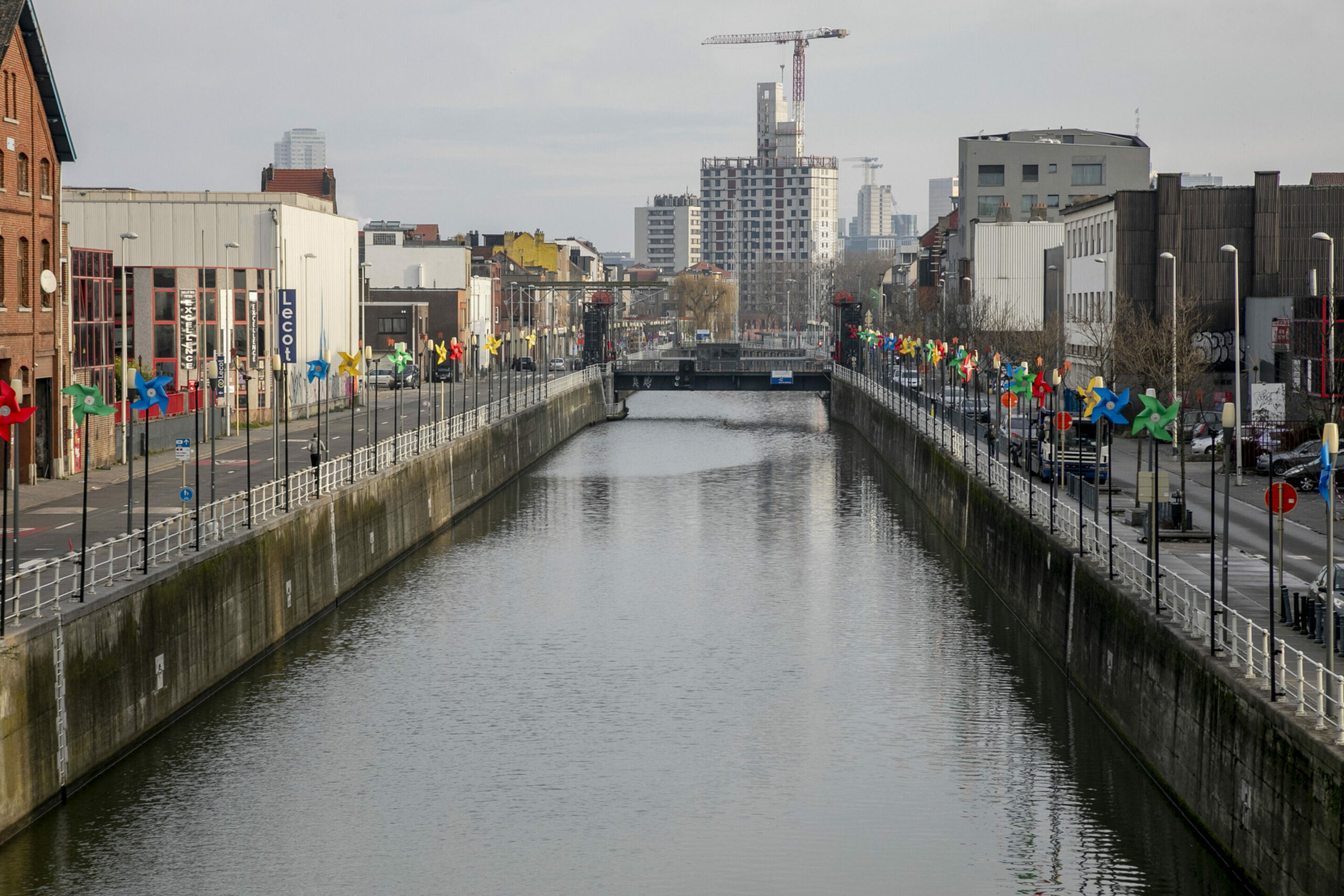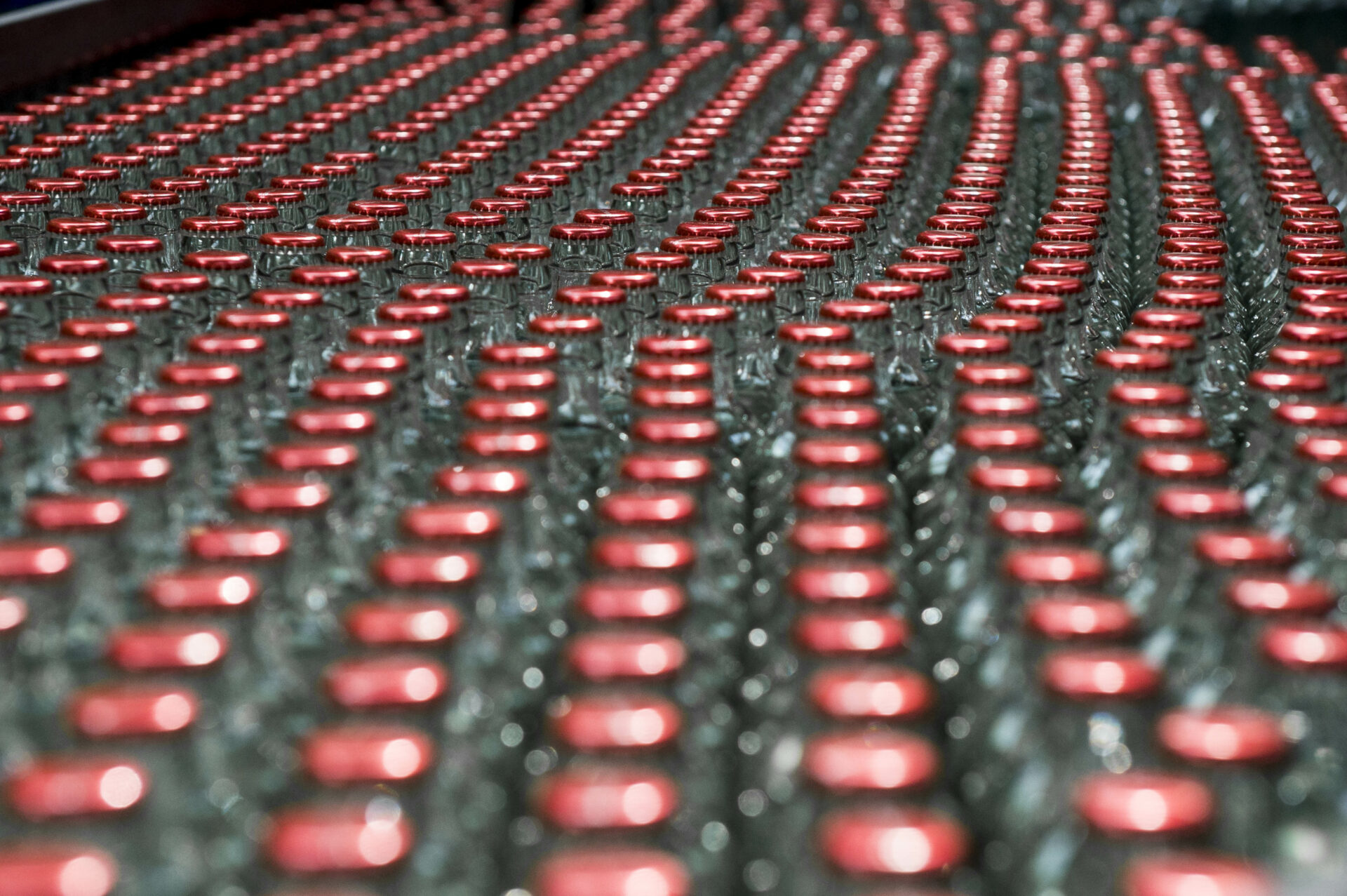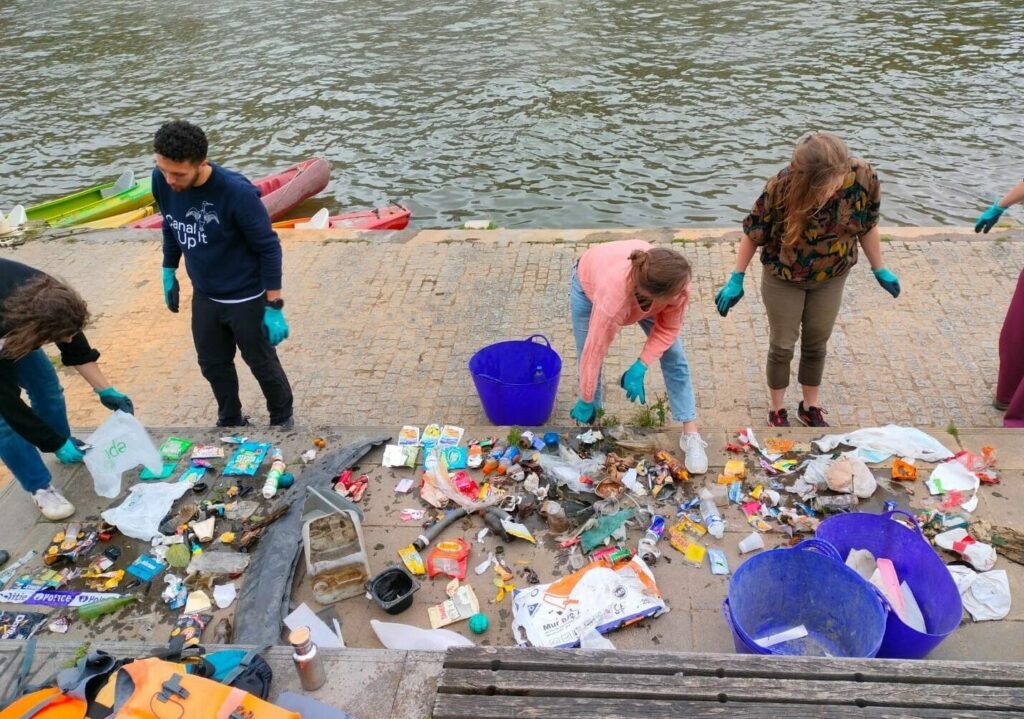Colruyt, Coca-Cola and Cristaline are the companies whose packaging can be found most often floating in the Brussels Canal, according to a survey by environmental organisation City to Ocean.
City to Ocean (formerly Canal It Up) has called for government officials to take decisive action on tackling litter, such as implementing a ban on double plastic packaging or introducing a deposit return system for cans and bottles.
Between June and mid-August, City to Ocean analysed 3,500 pieces of litter retrieved from the Brussels Canal by kayakers.
The items most frequently retrieved from the water were plastic bottles (402), followed by snack packaging such as Mars and Twix wrappers (366), cans (329), plastic bags (316), and smoking materials such as cigarette butts, packaging, and lighters (209).

Brussels Canal in Molenbeek-Saint-Jean, on New Year's Day, Saturday 01 January 2022 in Brussels. Credit: Belga / Hatim Kaghat
Plastic bottles, cans, caps and labels from plastic bottles accounting for 27% of all items retrieved, as City to Ocean said that a deposit return system could have kept these items out of nature.
The organisation also noted that almost all glass bottles retrieved from the water were not deposit returnable. Although the retrievable deposit for glass beer bottles in Belgium is only 10 cent, City to Ocean said the lack of deposit returnable glass bottles in the canal is a sign of the scheme's positive effect on litter statistics.
Top offending companies
City to Ocean was able to identify a producer for around half of the litter retrieved. For the third consecutive time, packaging from the same three companies was most widespread: Colruyt, Coca-Cola and Cristaline (Alma).
Plastic Cristaline water bottles were found during all but one of the City to Ocean cleanups, while Colruyt and Coca-Cola brands were found during 90% of cleanups.
City to Ocean noted that even were large companies highlight the recyclability of their packaging, it still ends up in nature. The organisation criticised the practice of supermarket chain Colruyt to double wrap products in plastic in order to boost multipack sales.

Credit: Belga / Nicolas Lambert
Among "structural solutions" suggested by City to Ocean were the introduction of a physical return scheme with a deposit of 25 cent for cans and plastic bottles, as well as a ban on single use plastic and cardboard cups and drinks pouches (like those used by Caprisun).
For businesses, City to Ocean said they must have to disclose their total plastic and raw material footprint, reduce their use of plastics and raw materials, redesign packaging to make it reusable or eliminate plastic, and shift to more refillable and reusable models.
"Only by doing this will we achieve litter-free beaches, parks, waterways, forests, and oceans. We need to completely reverse today’s norm of a linear disposable society to a circular reuse society where every package has value and multiple lives. It is time to break the recycling myth," the group said in a press release.
"We call on all stakeholders involved in the various government formations to make litter and real structural solutions to litter a priority," it added.

